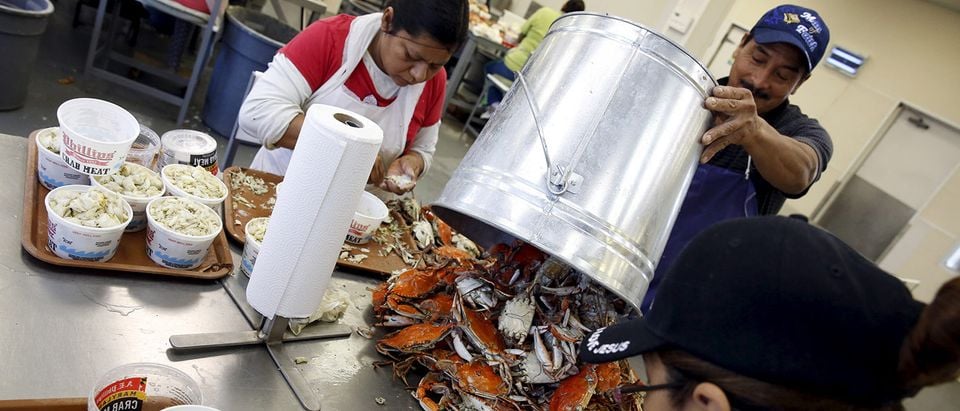Foreign guest worker programs and outsourcing are two heads of the same monster decimating the working class and blue collar workers — the same people that propelled Donald Trump to victory in 2016. These policies harm Americans by robbing them of the opportunity to earn a fair wage at a decent job. This reality underscores the importance of President Trump’s recent executive order that protects these workers by mandating that all federal agencies focus on hiring citizens for federal contracts, among other measures.
The order is a direct reaction to the news that the federally-owned Tennessee Valley Authority (TVA) planned to export as much as 20 percent of their work overseas while slashing 120 American jobs, with plans to cut another 100. This sort of action would be cause for uproar at a private company. At a government-owned corporation, it is outrageous. The TVA is a large employer across parts of the rural South, a region that lags behind the nation in economic development, where the company provides electricity and jobs for residents.
The Trump administration was right to crack down on the TVA for attempting to simultaneously outsource 20 percent of its work overseas while replacing some remaining domestic jobs with H-1B guest workers. Unfortunately, companies engage in this kind of behavior all of the time. For blue-collar workers there is no greater threat to their livelihood than the dual peril of outsourcing and foreign guest workers. In either case, employers are opting for cheaper foreign labor, whether it be overseas or right here in the United States.
The rationale for outsourcing jobs is almost always to cut costs on labor, regardless of the impact on American workers. A number of things contributed to the growing trend of companies outsourcing certain parts of their operations, including high taxes, burdensome regulations, and insatiable greed by corporate leaders who place profits and dividends over the lives of their employees. According to The Balance, outsourcing mostly impacts those employed in technology, call centers, human resources, and manufacturing. This worsened with the adoption of disastrous trade policies like the North American Free Trade Agreement (NAFTA). Then-candidate Donald Trump made overturning NAFTA a key promise of his 2016 campaign, in an overture to the workers whose livelihoods NAFTA destroyed.
President Trump addressed some of the incentive to outsource jobs by renegotiating trade agreements. But bringing jobs home means absolutely nothing if companies then turn around and fill those positions with foreign guest workers. Research shows that guest workers, especially in the H-2B non-skilled and H-1B skilled visa programs, are cheaper to hire than Americans performing the same jobs. The H-1B program is particularly egregious because Americans are often fired and then forced by their former employers to train their foreign replacements.
Many people believe that Americans are lazy and unmotivated workers. Forcing them to compete against H-1B and H-2B guest workers willing to work for significantly less reinforces this stereotype. The result of guest worker programs, inevitably, is that Americans miss out on opportunities right here in the United States.
How can someone expect to earn a living if the biggest employer in their area decides to move their job out of the country? And how can that same worker find a new job if they must compete against a foreign worker willing to work for significantly less money? Outsourcing and foreign guest worker programs jam American workers squarely between a rock and a hard place.
Fortunately, there are ways that our country can reverse these trends. President Trump took action to prioritize the hiring of American workers through the renegotiation of NAFTA, his Hire American, Buy American executive order and last week’s directive “Aligning Federal Contracting and Hiring Practices. But these actions merely scratch the surface of what is possible. While eliminating guest worker programs requires an act of Congress, the president can direct federal agencies through rulemaking to raise the cost of participating in the H-1B and H-2B programs, eliminating the financial incentive to hire a foreign guest worker instead of an American. On the outsourcing front, the president signed a tax cut that lowered the cost of doing business in the US, hoping to lure back companies that sent jobs overseas.
If the president wants to win a second term, he needs to prove to the American working class that he is willing to continue fighting for them. Facing off against outsourcing and foreign guest worker programs would go a long way in showing American workers whose side he is on.
Preston Huennekens is a government relations associate at the Federation for American Immigration Reform (FAIR).


